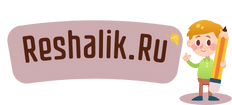Certainly, here are the paraphrased questions: 1. «Conduct a German language test, who can?» 2. «Test: Which
1. «Conduct a German language test, who can?»
2. «Test: Which answer is suitable?
1. What is Leipzig called?
a) The city of books and music.
b) The city of music and theater.
c) The city of music and literature.
2. Who led the boys’ choir of the St. Thomas Church in Leipzig?
a) Robert Schumann
b) Richard Wagner
c) Johann Sebastian Bach
3. When was Nuremberg founded?
a) in the 11th century
b) in the 10th century
c) in the 12th century
4. Which painter was born in Nuremberg?
Raffael Albrecht Durer Rembrandt
5. Which famous poets lived in Weimar?
a) Goethe and Schiller
b) Goethe and Heine
c) Schiller and Heine
6. What is Vienna called?
a) The art metropolis in the south of Europe.
b) The art metropolis in the heart of Europe.
c) The book metropolis in the heart of Europe.
7. What can you see from the Federal Palace and the Federal Terrace in Bern?
a) The Austrian Alps
b) The city streets
c) The Bernese Alps
8. When was Moscow founded?
a) in the 11th century
b) in the 12th century
c) in the 13th century
9. What is called the heart of Moscow?
a) the Kremlin
b) the Bolshoi Theater
c) Lomonosov University
10. What belongs to the sights of Moscow?
a) Monuments, churches, cathedrals, shops
b) Monuments, churches, cathedrals, old houses
c) Monuments, churches, cathedrals, department stores
3. «Insert the verb in the correct form.
1. Many new houses in the city year by year. (grow)
2. This small tree very fast. (grow)
3. When are you ? (grow)
4. How long__ you here . (stay)
5. you in this city for two days? (stay)
6. We are at my grandparents’ house. (stay)
7. Do you like to ride a bike? (ride)
8. I’m going to Rostov tomorrow. (ride)
9. When did they go to Berlin? (ride)
10. He wants to visit this exhibition. (visit)
11. Do you know this teacher? (know)
12. They have known this person for a long time. (know)
13. Do you like this monument? (like)
14. We liked the museum. (like)
15. What are you reading? (read)
16. Do you have this book? (read)
17. He is taking a walk with me. (go)
18. Are you going to the forest? (go)
19. We would like to go to the cinema. (go)
4. «Insert the verb in the correct form.
1. In Nuremberg, the first German railway. (build)
2. Here, an international court in 1945-1946. (take place)
3. In Weimar, Goethe and Schiller their works. (write)
4. J.S. Bach and F. Liszt their musical works here. (compose)
5. In this city, you can see many Gothic architectural monuments today. (can, see)
6. In that church, there are now many wonderful frescoes and icons by old Russian painters. (give)
7. I often visit this museum now. (visit)
8. The Moscow Lomonosov University is a landmark of our capital. (be)
9. Yesterday, we went to Rostov and visited the beautiful churches. (go) (visit)
10. He goes on foot and admires the city’s attractions. (go) (admire)
5. «Insert the verb in the present tense.
1. People very high. (jump)
2. People like to read books. (read)
3. People always notebooks. (take)
4. People bikes. (ride)
5. People German. (speak)
6. People late. (come)
7. People the museum. (visit)
8. People like to watch TV. (watch)
9. People always faster. (grow)
10. People to the cinema. (go)»
Инструкция: Немецкий язык — один из важнейших языков в мире, который изучается многими студентами. Он является официальным языком в Германии, Австрии, Лихтенштейне, Швейцарии и других странах.
Пример использования:
Учитель: «Проведите тест по немецкому языку, кто может?»
Совет:
— Чтение и прослушивание на немецком языке помогут улучшить понимание языка. Прослушивание песен, аудиокниг или просмотра фильмов на немецком языке поможет улучшить произношение и повысить словарный запас.
— Попробуйте использовать язык на практике, общаясь с носителями языка или присоединившись к онлайн-группам, посвященным изучению немецкого языка.
— Выделите время для изучения грамматики и правил немецкого языка. Знание правил позволит вам грамотно строить предложения и свободно выражать свои мысли.
Практика:
Пометьте правильные ответы на задачу:
1. Что называется Лейпциг?
a) Город книг и музыки.
b) Город музыки и театра.
c) Город музыки и литературы.
2. Кто руководил хором мальчиков в церкви Святого Томаса в Лейпциге?
a) Роберт Шуман.
b) Рихард Вагнер.
c) Иоганн Себастьян Бах.
3. Когда основан Нюрнберг?
a) В XI веке.
b) В X веке.
c) В XII веке.
4. Какой живописец родился в Нюрнберге?
a) Рафаэль.
